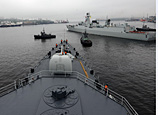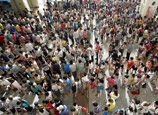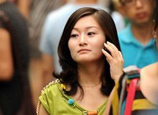
Wang Yang lay on the hospital bed, sweating hard because of the continuous pain caused by labor contractions. Her suffering had continued for more than 17 hours, but her cervix was still not open wide enough for the baby to be born.
Wang felt she could not bear the pain any longer so she asked her husband, who was sitting by her side, to ask the doctor for a caesarean section. However, her mother opposed the idea, saying Wang should have a natural birth because it is beneficial for her and the baby's health.
"I was totally furious at that time and quarreled with my mother. I accused her of not understanding how much pain I was in. It's me who has to bear the pain rather than her. I even yelled at her to get away," Wang recounted.
The quarrel ended when the doctor stepped in and told Wang she should stick with a natural birth, because she was not facing a medical emergency. Doctors are supposed to call for caesarian births to deal with medical complications that pose risks to the child or mother, not to make a mother more comfortable.
Though most of the old generation like Wang's mother prefer natural births, many mothers born after 1980 have a different attitude, and think a caesarean birth is a good option.
World Health Organization (WHO) statistics from 2011 show that caesarean births in China have risen to 46.5 percent, and in some first-tier cities, the figure is more than 60 percent, far above the rate of 15 percent, which WHO thinks reflects the appropriate rate if the procedure is used based on medical need. This is an incredible change from the previous generation. In 1970s, the caesarean rate in China was only 5 percent, according to the Beijing Public Health Information Center.
One of the main drivers appears to be women intent on avoiding the pain of childbirth. Another reason is that Chinese women are giving birth to bigger babies more frequently. In addition, doctors make more money from caesarean births.
 |
















 Wall collapse kills 12, injures 7 in N China
Wall collapse kills 12, injures 7 in N China


![]()
